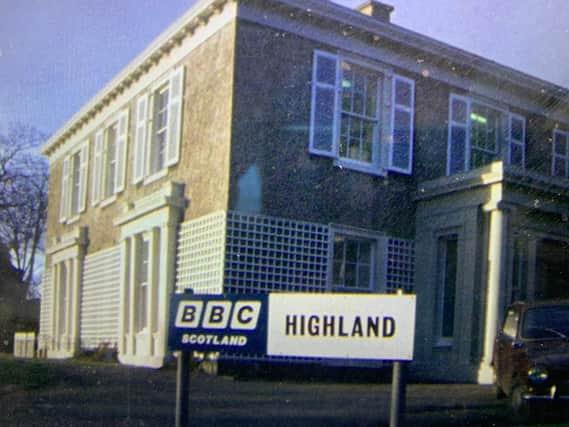Please BBC: give us back a decent Radio Highland, like it used to be


Perhaps hardest to answer, why is provision so much worse than decades ago when BBC Radio Highland won a reputation for quality reporting a mission to serve its area. And why has public service broadcasting for the Highlands and Islands been allowed to decline to a few desultory five minute news bulletins?
My own first experience of reporting for radio was on a programme called Northbeat which emanated from Aberdeen daily and covered Scottish news and current affairs from a “north” perspective.
Advertisement
Hide AdAdvertisement
Hide AdThis was an imaginative approach before local radio existed. It showed how a different Scottish news agenda emerges if it is determined from outside the central belt.
Stories from the north-east and the Highlands and Islands were carried on their merits rather than as curiosities thought worthy of inclusion by editors in Glasgow. Accordingly, there was knowledgeable coverage of issues which, to much of Scotland, were peripheral but from a different geographic perspective were central. No such programme exists today.
In 1976, there was a great leap forward with the creation of BBC Radio Highland which served both English and Gaelic language audiences. Three years later, Radio nan Eilean started in Stornoway, also with a bilingual output. In 1985, all Gaelic provision came together as Radio nan Gaidheal - a national station which remains its proper status.
BBC Radio Highland, broadcasting in English to a potential audience of 200,000, lasted from 1976 to 1993. There were half-hour opt-outs from Radio Scotland, also feature and current affairs programmes. It was a serious “local” station which built a strong reputation for real journalism with excellent reporters who really cared about their work.
Advertisement
Hide AdAdvertisement
Hide AdThen it all stopped. A 1993 reorganisation reduced the Inverness output to these five minute news bulletins. The supposed trade-off would be increased input into Radio Scotland but it never happened.
A big campaign was waged against Radio Highland’s closure, led by local authorities and politicians who realised something of value was being taken away. The battle was lost and promises were soon forgotten.
Every time I hear one of these five-minute bulletins, all of this crosses my mind. It is not the fault of the people working on them who I’m sure are more frustrated than anyone by the format – a brief mix of press releases, road accidents and unchallenged soundbites before they get onto the sport and weather. All in five minutes. I don’t know what the BBC call this but it certainly isn’t journalism.
To give one example I happened to hear last week - two mornings running, Alasdair Allan was given air time to say something about the ferry situation, entirely on his own terms. No questions, no challenge yet this is an issue on which his feet should have been held to the fire by any competent interviewer.
Advertisement
Hide AdAdvertisement
Hide AdIt occurred to me that he has never had a hard question put to him on air in 14 years because there is nowhere to ask them.
This is not however about any one politician or party. They all get away with it because there is effectively no serious news and current affairs broadcaster in the Highlands and Islands – and there hasn’t been for nearly 30 years. It is a major democratic deficit. And the same applies to myriad stories that have nothing to do with politics.
In the meantime, what has happened on BBC Radio Scotland? There are now three hours of “Good Morning Scotland”, an hour and a half of “Lunchtime Live” and two hours – yes, two hours – of “Drivetime”, all covering essentially the same agenda which is wearily stretched to the limits in order to fill the space, with massive central belt orientation. Radio 4 can get by with an hour for “PM” but Radio Scotland apparently needs two hours of John Beattie.
So why is what was possible in the ‘70s, 80s, 90s now impossible – substantial opt-outs from these interminable Scotland-wide programmes? Why is there no coverage of Highlands and Islands issues at Holyrood? Why was there no debate around ferries? Why will there be no radio space for intelligent discussion of a forthcoming Crofting Bill which is of no more interest to Galloway than the state of the road to Cairnryan is to the Western Isles?
The centralisation of Scottish broadcasting has been a hugely retrograde step in terms of scrutiny, debate and the mission to inform. It should either be justified or reversed.